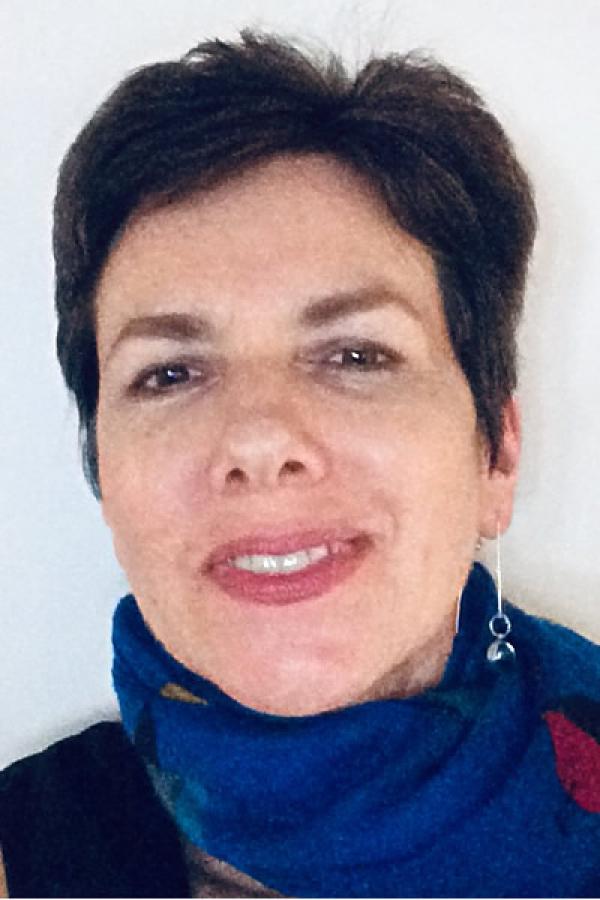Karen Kovacik

Photo courtesy of Karen Kovacik
Bio
Karen Kovacik is the translator of Jacek Dehnel’s poetry collection Aperture (Zephyr, 2018), semifinalist for the 2018 PEN Award for Poetry in Translation, and Agnieszka Kuciak’s Distant Lands: An Anthology of Poets Who Don’t Exist (White Pine, 2013), longlisted for the 2014 National Translation Award. She is also the editor of Scattering the Dark: An Anthology of Polish Women Poets (White Pine, 2016). In 2004, she was awarded a Fulbright Research Grant and in 2012, an NEA Fellowship in Literary Translation. The author of the poetry collections Metropolis Burning and Beyond the Velvet Curtain, she was Indiana Poet Laureate from 2012-2014. Kovacik is Professor of English at Indiana University Purdue University Indianapolis.
In translating Polish poet Jacek Dehnel, as in writing my own poems, I find resonance in T.S. Eliot’s phrase from “East Coker”: “one has only learnt to get the better of words / For the thing one no longer has to say. . . / And so each venture / Is a new beginning, a raid on the inarticulate.” In late 2018, Zephyr Press published Aperture, my selection of shorter lyrics by Dehnel. My National Endowment for the Arts project Parallel Lives contains a dozen of Jacek Dehnel’s longer poetic suites, each made up of three to 12 poems. In spring 2019, I will be on sabbatical, wrestling with Dehnel’s long, difficult poems. Thanks to the NEA, for two months, I will be looking out on the Atlantic Ocean, east toward Poland, as I conduct my newest “raid on the inarticulate.”
One of the poetic suites “Parallel Lives” imagines alternate fates for famous writers. Poet Constantine Cavafy has become the closeted captain of a ship in Alexandria. Federico García Lorca, an attorney, flashes on “Qasida of the Rose” while he’s dictating a dry legal writ. Czeslaw Miłosz is a rural squire in his native Lithuania, Wisława Szymborska a botany teacher. And, perhaps most movingly, Tadeusz Borowski, author of This Way to the Gas, Ladies and Gentlemen, who survived Auschwitz only to die a suicide after the war, escapes into Romania, thus evading the muse of tragedy.
Another series, “Little Songbook of Love Poems, Intermediate-Level,” draws on tropes from weather, biology, chemistry, literature, and technology to evoke being in relationship. Like Philip Larkin and F. Scott Fitzgerald, whose language Dehnel studied closely when translating their work, he reinvents colloquial phrases such as “heating season” (when apartment buildings warmed by radiators turn on the boiler each fall) to portray a couple newly living together and to imagine how they might change as they age. The final poem, inspired by some lines from a sonnet by Pierre de Ronsard, begins with a man setting himself on fire after a relationship ends, and the poem’s speaker wonders how to convey what happy love feels like. He imagines an even bigger blaze that encompasses the happy lovers’ apartment, their books and papers and hardwood floors, that provides light and warmth for others.
I find working with Jacek Dehnel’s poems simultaneously bracing and comforting. I’m drawn to his rich language and his layering of time, his alertness to precedent. His poems are traditional in form yet contemporary in subject matter. Most were composed in the traditional 13-syllable line, which I modify slightly in translation, converting it either to a relaxed iambic pentameter or to a slightly shorter syllabic line. As a poet, I’m drawn to translating writers who challenge me formally, intellectually, and creatively, and Jacek Dehnel does just that.
I am grateful for the Arts Endowment’s vote of confidence as I undertake this challenging project.
from "A Small Songbook of Love Poems, Intermediate Level" by Jacek Dehnel
[Translated from the Polish]
for P.T.
Even when veiled by embers, fire remains fire,
Love’s sacred walls will not snuff out this pyre.
P. Ronsard
If unhappy love ends
with a splash of mineral spirits and setting oneself ablaze
on a street in Bellows Falls (New Hampshire)
then how does happy
love end?
What will extinguish a happy love,
unquenchable,
crackling in the dark,
scattering sparks and scorching,
flying up the stairs, unflagging,
leaping about the roof from rafter to rafter,
throwing out light and warmth—
what will extinguish it?
Toss bed and table into it, throw in a chair, the parquet floor,
all books and papers into that happy love.
Watch as the people of Bellows Falls walk toward it,
how they warm their hands on it, love.
Warsaw, 17 October 2011
(First appeared in Jacek Dehnel’s Aperture, Zephyr Press, 2018).
About Jacek Dehnel
Jacek Dehnel (b. 1980) is one of the most versatile and prolific writers in Poland—the author of nine collections of poetry, a half dozen novels (three co-authored with Piotr Tarczyński), and numerous works of nonfiction. He has translated into Polish Philip Larkin’s Collected Poems, Henry James’ Turn of the Screw, and F. Scott Fitzgerald’s The Great Gatsby. Dehnel’s work has been translated into 14 languages and has garnered much recognition, including the Kościelski Foundation Prize for outstanding poetic debut and the Passport Polityki Prize for his novel Lala.

